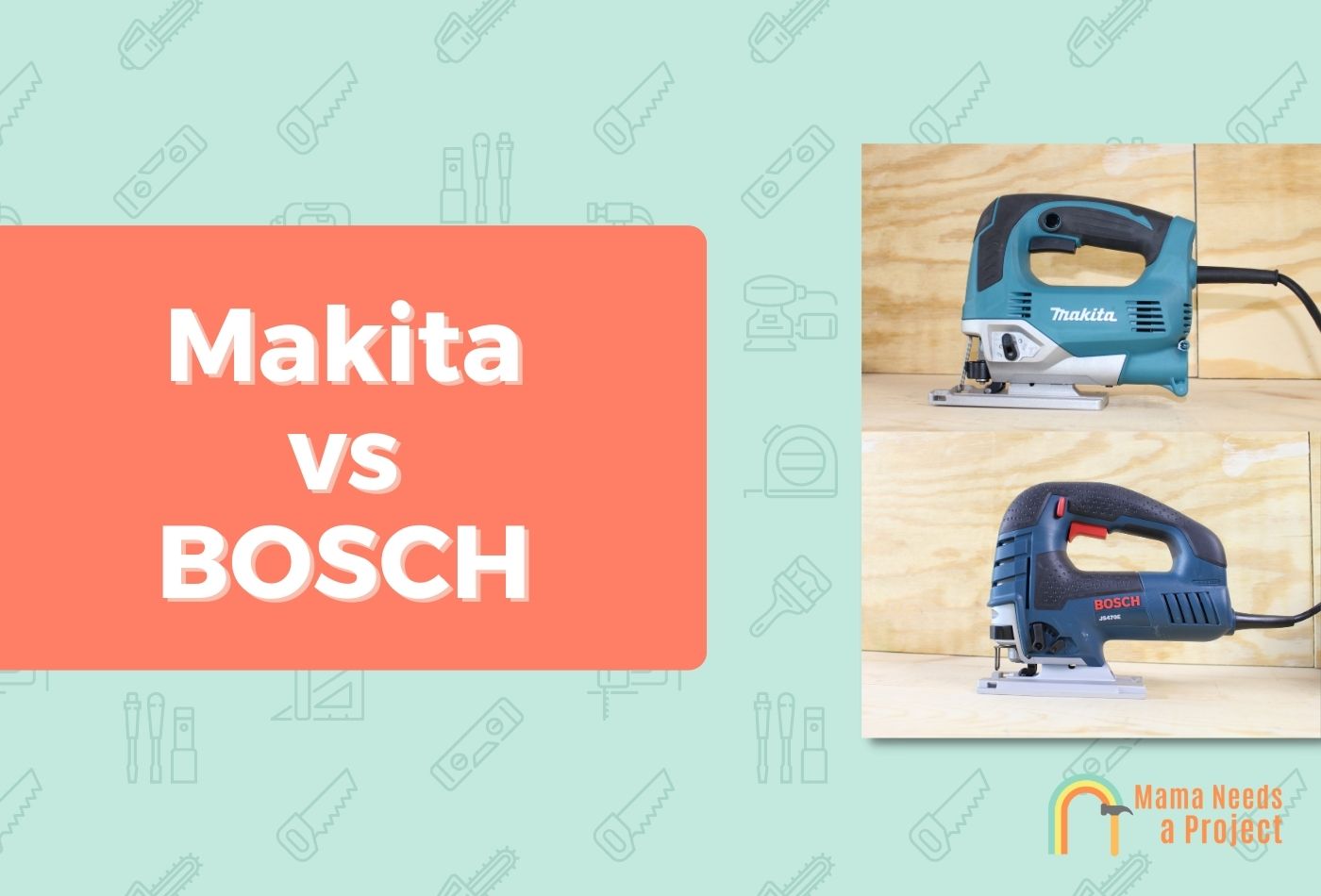Makita vs BOSCH: My Thoughts (2024)
Walk through the aisles of your local hardware store and it shouldn’t take you long at all to spot both the Makita and BOSCH brands.
But how do these brands compare, and which is better?
In this article, I’ll compare Makita vs BOSCH so you can determine which of these power tool brands is best for your needs. Let’s get started!
- Makita tools are generally better than BOSCH tools because they’re made with higher-quality components and designed to be precise and durable for more than a decade.
- But BOSCH tools are capable, efficient, and affordable, so they shouldn’t be overlooked simply because they’re inferior to Makita Products. In truth, you can’t go wrong with either brand!
Makita vs BOSCH Power Tools
Quality & Reliability
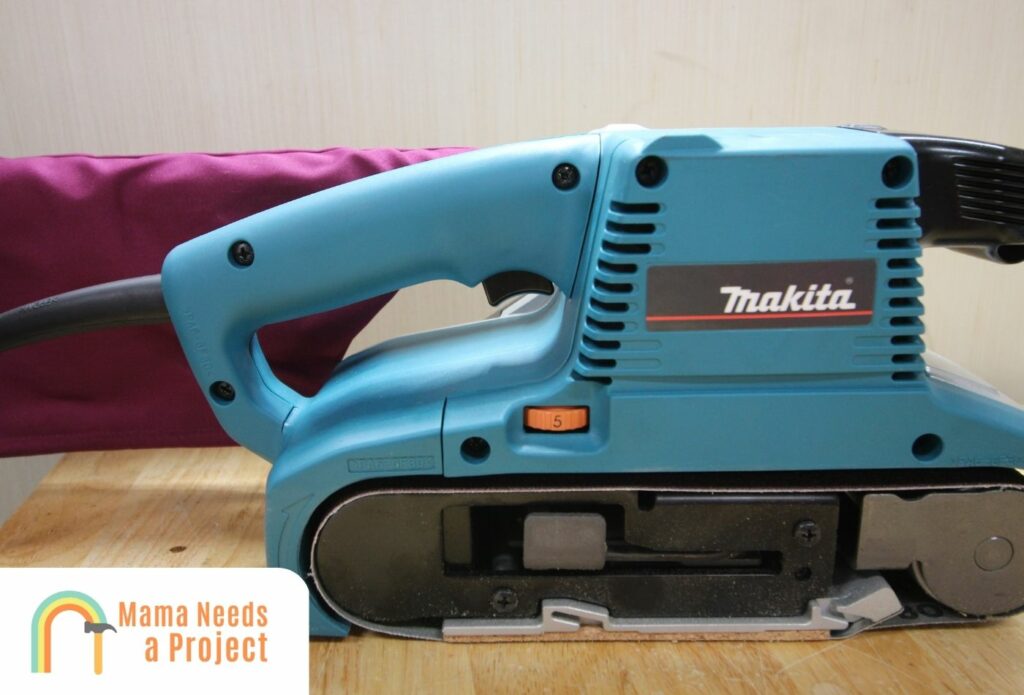
Compare each Makita product to its BOSCH counterpart and you’ll find that the vast majority of Makita products are of a higher quality and therefore more reliable.
Why?
Makita equips their power tools with the best materials possible, and they use innovative manufacturing processes to put their tools together.
Plus, there’s still a lot of assembly done by hand, and this is a big part of what makes the tools so reliable.
But make no mistake: Bosch tools are reliable enough for DIY and professional work, which explains why both hobbyists and tradespeople swear by them.
However, the objective truth is that BOSCH doesn’t use the high-quality materials Makita uses, and it’s for this reason that BOSCH tools rarely outperform their Makita counterparts.
Product Lineup
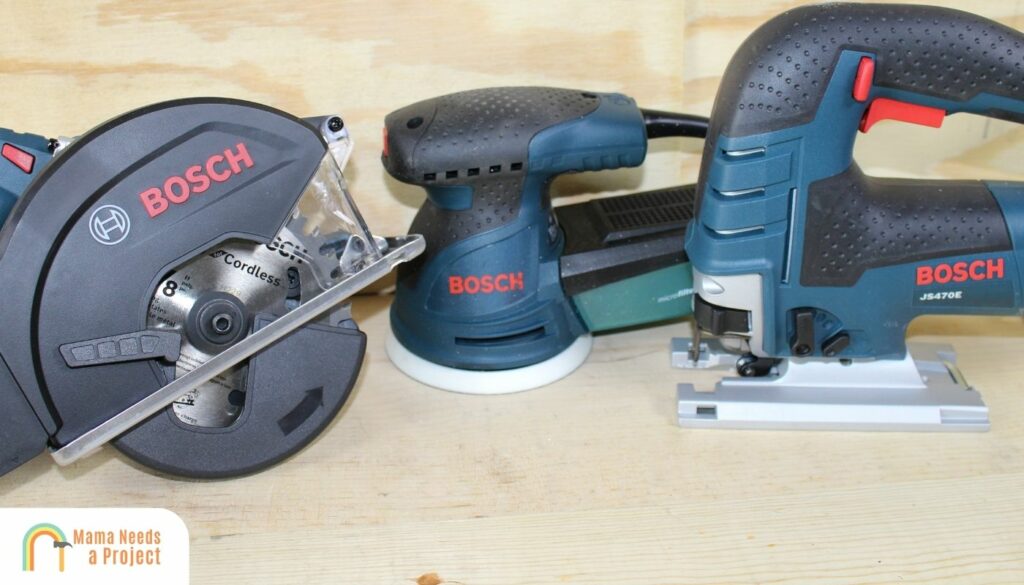
Both manufacturers produce a wide variety of power tools, and some of their most sought-after products are:
- Saws (miter saws & circular saws)
- Drills (hammer drills and driver drills)
- Angle grinders
- Hammers
- Sanders
- Routers
- Planers
- Multi-tools
Additionally, both brands offer a handful of batteries, outdoor equipment, and all the accessories their tools need to be successful.
In short, Makita and BOSCH are two companies that manufacture virtually all the tools the average individual will ever need, and they both make professional-grade products for certain industries.
The only significant difference, as far as this category is concerned, is that BOSCH manufactures appliances and other consumer goods, whereas Makita is strictly a power tool manufacturer.
Ease of Use
When it comes to usability, Makita and BOSCH are pretty much neck and neck, as neither brand over-engineers their products, and they’re both super easy to use.
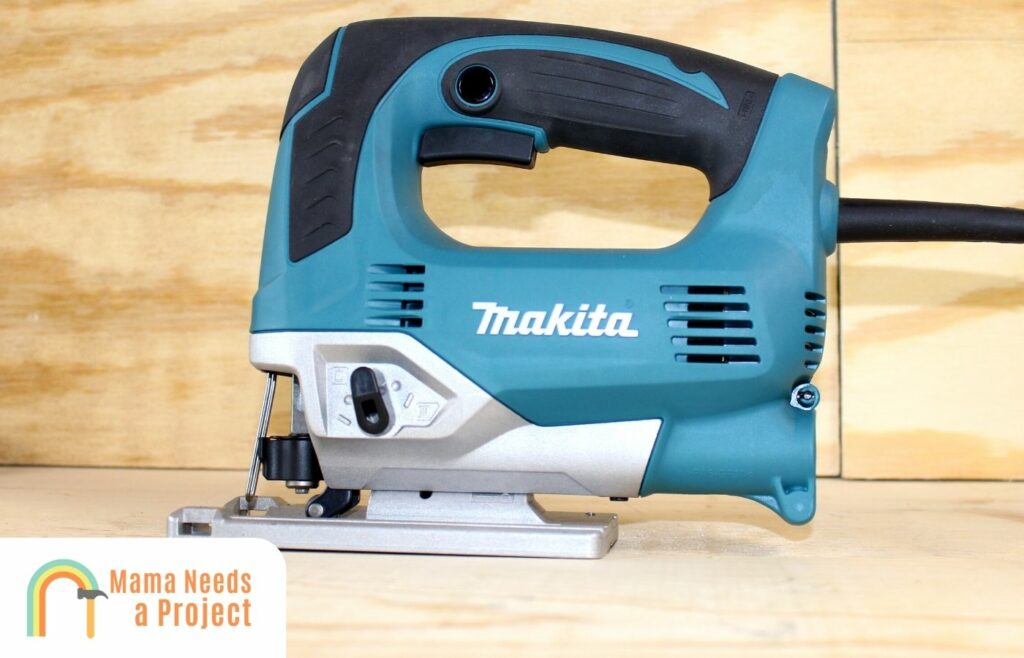
BOSCH and Makita tools are also ergonomic, and most of them are lightweight, so users rarely have problems with maneuverability or discomfort.
Additionally, most of their power tools have LED lights built in, and these ensure users can work in areas where lighting conditions aren’t ideal.
Considering its tier alone, I believe BOSCH tools offer superior usability, especially since this tier is also occupied by DeWalt and Milwaukee, two brands that (in my experience) are infamous for making their power tools slightly more complicated than necessary.
Features
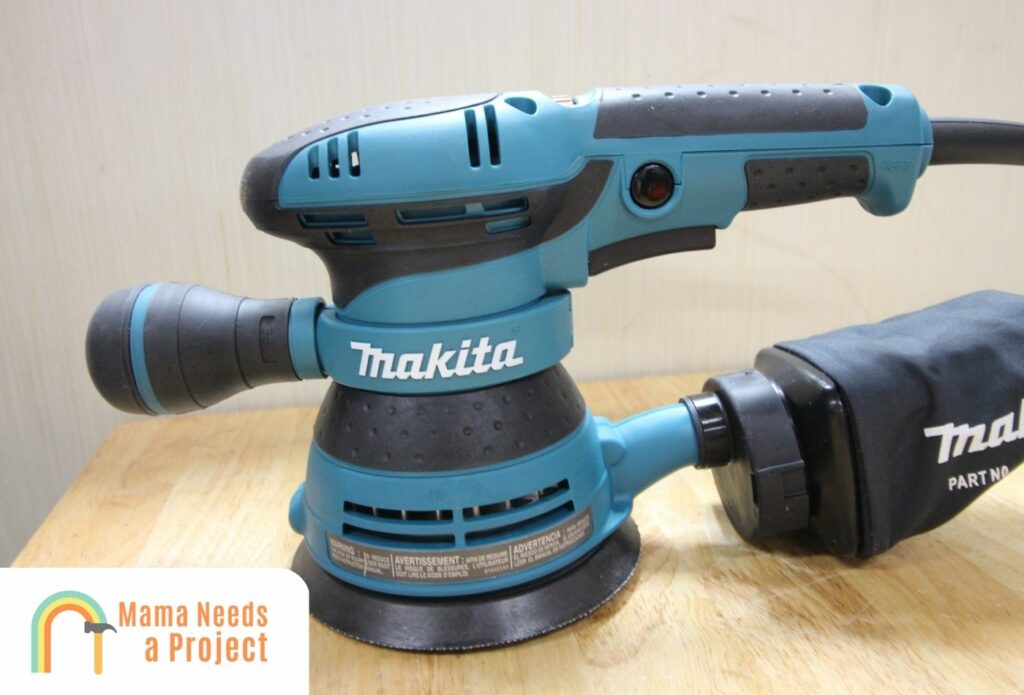
Makita and BOSCH both equip their tools with numerous features, and these don’t just make their tools easier to operate but also safer.
For example, both brands equip their power tool batteries with surge-protection features, which prevent a meltdown in the case of a serious battery malfunction.
Their tools also have advanced braking mechanisms, LED lights, auto-shutoff tech, and finely calibrated speed-control mechanisms.
In terms of features, I’d give Makita a very slight edge because their power tools are slightly more advanced than Bosch.
Cordless Tools & Batteries
At present, Makita currently puts out 12V, 18V, 36V, 40V, and 80V batteries. BOSCH, on the other hand, only offers 12V and 18V batteries.
Most of Makita’s cordless, handheld power tools run on an 18V battery, and most of BOSCH’s take the same battery (voltage-wise).
And since most of the power tools both companies put out run on the same kind of battery, these batteries are not only interchangeable but versatile too.
Therefore, if you purchase a handful of power tools from either brand, and they all run on the same battery, then you should never find yourself in a situation where you don’t have a battery to power your tool – which makes all the difference.
Even though the batteries Makita puts out are different from the ones BOSCH makes, they all utilize certain components to ensure they’re not only effective and reliable but safe too.
For example, the 18V batteries Makita uses have anti-surge tech built in, along with components that ensure longer run time and faster charging.
So, who has better cordless power tools?
In my opinion, this one is neck and neck, but I give a slight edge to Makita for better battery life and performance.
Price
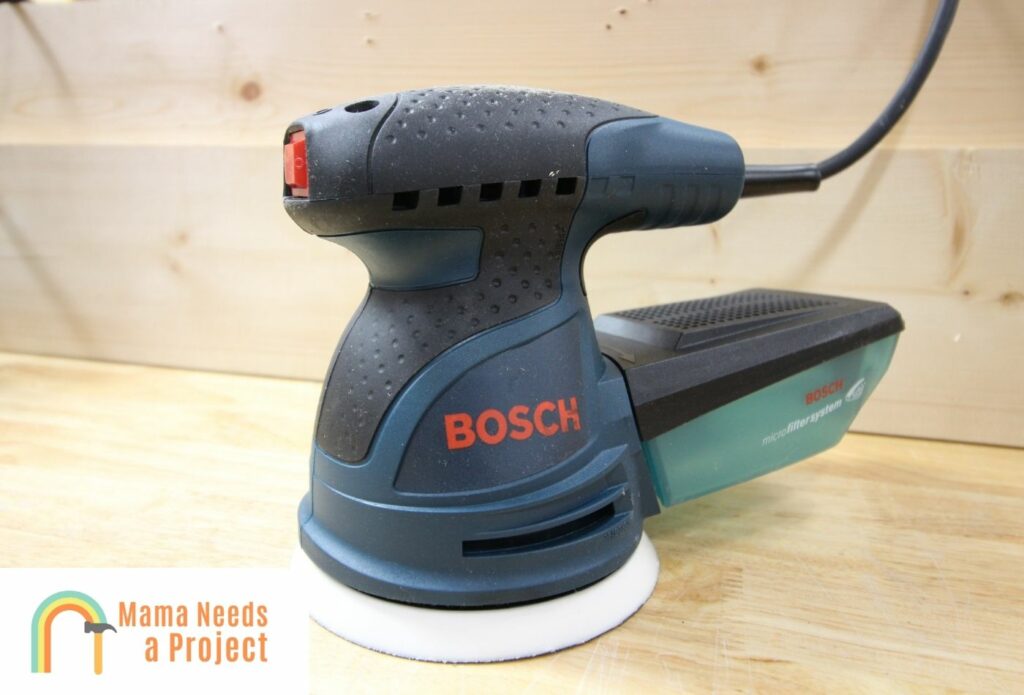
The dollar difference between the average Makita power tool and the average BOSCH power tool is less than $60, which is lower than the dollar difference between the average Makita product and the average products of BOSCH’s competitors, namely DeWalt, Milwaukee, and Craftsman.
Makita tools are more expensive than BOSCH tools mainly because they employ higher-quality materials, take longer to produce, and are constantly in demand.
A rule of thumb to remember, in regard to power tool prices, is: the longer a tool can keep achieving top-notch results, the more expensive it’ll be.
Makita cordless power tools can deliver top-notch results for well over a decade if they’re maintained properly, and it’s this fact, more than any other, that ensures Makita tools are always sold for a higher price than the average power tool.
So if you’re a new homeowner, for example, and you need all the basic tools, but you don’t expect to be doing precision work frequently, BOSCH’s affordable lineup is the way to go.
But if you’ve taken up a hobby like woodworking or auto repair, Makita’s well-designed and reliable tools will be worth the money spent, provided you know how to get the most out of them.
Warranty
Before purchasing a power tool, you should make sure it comes with some kind of warranty or satisfaction guarantee, as power tools can be complicated devices that are prone to malfunctions both minor and major.
Both Makita and BOSCH stand by the materials they use and their workmanship, and that’s why both brands back their products with multi-year limited warranties and satisfaction guarantees.
Of course, the specific terms of a warranty largely depend on what the product is, but for most power tools (by either brand) you can expect a warranty of at least a year that covers defects related to materials or workmanship.
And for the more expensive benchtop products, like Makita’s famous tabletop miter saw, usually a five-year limited warranty is provided with purchase.
Just remember that a whole host of things can void a warranty, but most common mistakes warranty holders make are: (1) attempting DIY repairs and (2) bringing the tool to a non-licensed repair shop.
To execute a warranty, simply visit the manufacturer’s site, or call them for instructions. What usually happens is you send the product to the manufacturer, and if they can’t fix it after a certain number of attempts, they’ll send you a new product free of charge.
Support
When you purchase a tool from either power tool brand, you’ll also get access to several support features and services, all of which can help you use your tool better.
Plus, both companies are known for providing good customer service, which is especially useful when you need warranty or recall information.
They even provide thorough cleaning and maintenance guides, all of which are tailored to a DIY-focused audience, so there’s no excessive use of jargon.
Makita vs BOSCH Drills
Makita
The average Makita drill runs on an 18V lithium-ion battery and is powered by a brushless motor. They manufacture corded and cordless drills, but their cord-free models are most popular.
Makita driver-drills can successfully execute a range of drilling, driving, and fastening tasks, mainly because they offer a handful of speed settings.
BOSCH
The average BOSCH drill takes an 18V battery as well, but these aren’t as powerful as the ones Makita uses, so won’t get as much done on a full charge.
That said, BOSCH drills are capable, cordless tools that can complete all kinds of drilling, driving, and fastening tasks, and if properly maintained you shouldn’t have any problems with them—at least for a few years after purchase.
Verdict
Since Makita drills are known for being some of the best of what this power tool company has to offer, I say going with them over BOSCH, in this category, is a no-brainer.
But if you don’t have hundreds to spend on a top-of-the-line Makita drill, a BOSCH drill should do just fine, especially if you don’t plan on using the tool regularly.
Makita vs BOSCH Impact Drivers
Makita
Like Makita drills, Makita impact drivers run on an 18V battery, and they too are powered by brushless motors.
Ideal for drilling through hardwoods, nonferrous metals, and other dense materials, Makita impact drivers are lightweight, easy-to-grip, and equipped with multiple speed settings to ensure they can complete numerous drilling and driving tasks.
BOSCH
BOSCH impact drivers run on an 18V battery too, and they can adequately execute most of the tasks Makita impact drivers can execute, but it’s harder for BOSCH impact drivers to achieve top-notch results consistently because the components they rely on are good but not the best.
Verdict
In this category too, Makita is the clear winner. Still, if you don’t want to spend a ton on a tool you may only need once every few years, stick with BOSCH.
History of Makita Tools
Makita was founded in 1915, and nearly forty years after opening their doors they’d become the first Japanese company to manufacture and sell electric planers in Japan.
Originally started as an electric motor manufacturing company, the company switched to manufacturing high-quality tools after the war, specifically power tools.
In 1969, they put out the 6500D Battery-Powered Drill—their first battery-operated power tool. After this, they started designing battery-operated versions of their other popular tools.
Throughout the early ‘70s, Makita developed a reputation for being a solid power tool manufacturer, which encouraged the company to set up sales centers across Europe, North America, and Australia.
Before the decade was over, they’d put out their first nickel-cadmium battery-powered tool, the 6010D Rechargeable Drill.
In the 1980s, they started selling their power tools in different countries throughout Southeast Asia, and in the early 2000s they expanded to South America.
Their first lithium-ion battery was launched in 2005, and 10 years later they’d celebrate a 100 years of business.
Today, the company has manufacturing centers in Japan, Germany, China, Brazil, Mexico, the U.K., the U.S., Canada, Romania, the U.A.E., and Thailand, and they did over $6.5 billion in sales in 2022.
Makita Pros
- Exceptional Quality: This tool company only uses high-grade materials to manufacture their tools, and that’s why they’re precise, durable, long-lasting, and efficient.
- Expertly Designed: You can operate Makita tools without experiencing discomfort because they’re ergonomic, lightweight, and easy to maneuver.
- Interchangeable Batteries: The average Makita tool takes an interchangeable 18V battery, which is super convenient if you have a lot of them.
- Attractive Kits: Makita kits usually include additional batteries, chargers, and other equipment, all in an easy-to-carry case or bag.
Makita Cons
- Price: Makita is one of the most expensive power tool brands, and in some cases there’s more than a $100 difference between their product and their competitor’s.
- Smaller Selection: Makita’s selection is smaller when compared to the selections offered by other leading tool brands, like Milwaukee and DeWalt.
History of BOSCH Tools
BOSCH was founded in 1886 by Robert Bosch, and for more than 130 years this company has been manufacturing tools and equipment for all kinds of industries.
The company’s roots go back to Stuttgart, Germany, where Bosch opened his first commercial workshop.
In the early years, the company focused mainly on making magneto ignition systems for automobiles, and even today BOSCH is one of the most respected names in the automotive industry.
By 1906, BOSCH was manufacturing some of their products in the U.S., specifically at their factory in Springfield, Massachusetts.
Seven years later, the company would have sales office on nearly every continent, and 88% of sales were coming from markets outside Germany.
But the outbreak of WWI significantly hamstrung the company, and they didn’t get back to their position as an international tool manufacturer until the mid 1920s.
The same situation happened in WWII, but worse, and this time they didn’t recover for nearly two decades.
It was during this second re-entering of the global market when BOSCH started putting out the appliances and power tools they’re known for today.
Over the 60+ years since, BOSCH has developed hundreds, if not thousands of products, and today they once again operate manufacturing facilities on nearly every continent, generating 88.2 billion euros in revenue in 2022.
BOSCH Pros
- Economical: The vast majority of BOSCH’s tools are affordable when compared to the products put out by their main competitors.
- Efficient: BOSCH tools can complete even difficult tasks in a reasonable period, and without demanding too much from the user.
- Easy to Operate: Most BOSCH tools can be operated for at least a couple minutes continuously because they’re ergonomic and lightweight.
- Interchangeable Batteries: Many of BOSCH’s power tools take the same 18V battery, so you should never be without a charged battery if you have multiple BOSCH tools.
BOSCH Cons
- Battery Life: BOSCH batteries don’t last as long as the batteries employed by some of their competitors, and they only hold a few hours worth of charge.
- Flimsy Components: Some BOSCH tools have flimsy but necessary components, which is unfortunate since you can’t exactly avoid using them.
Makita vs BOSCH: Overall Verdict
So after all considerations have been made, which brand is superior at the end of the day?
Well, BOSCH makes capable tools that can execute a range of repairing and building tasks with ease, whether you’re an experienced tradesperson or not.
But when it comes to overall quality, Makita has them beat. Makita is one of the best power tool brands manufacturing products today, and basically all of their cordless and corded power tools are equipped with highest-quality components to ensure efficiency, reliability, longevity, and much more.
From what I gather, the general consensus (with which I agree) is that BOSCH tools are ideal for DIYers and hobbyists because they’re reliable, affordable, and simple, while Makita tools are best for professional tradespeople who need top-tier results consistently to stay in business.
Looking for other brand comparisons? Check out these guides!
Makita vs DeWalt | Makita vs Milwaukee | Makita vs Ryobi | Makita vs Metabo

